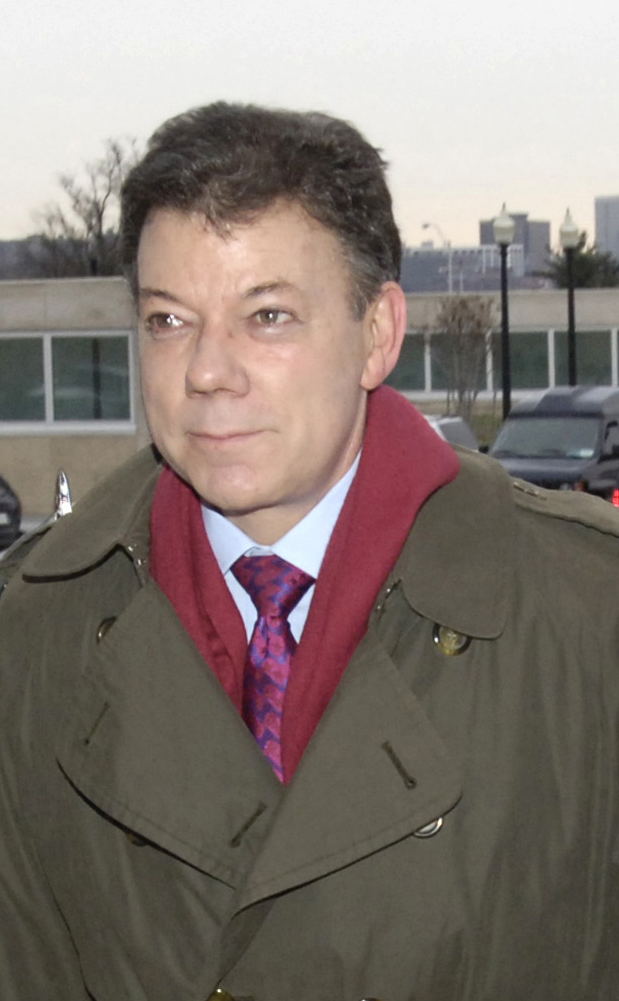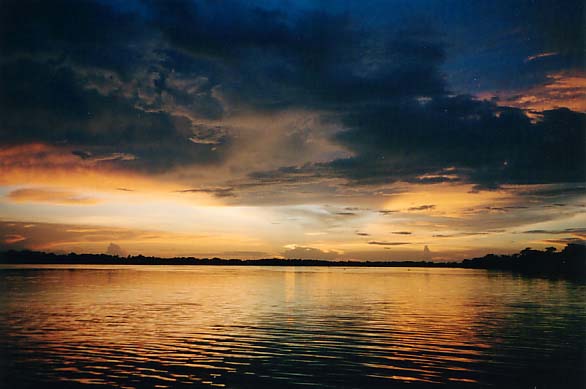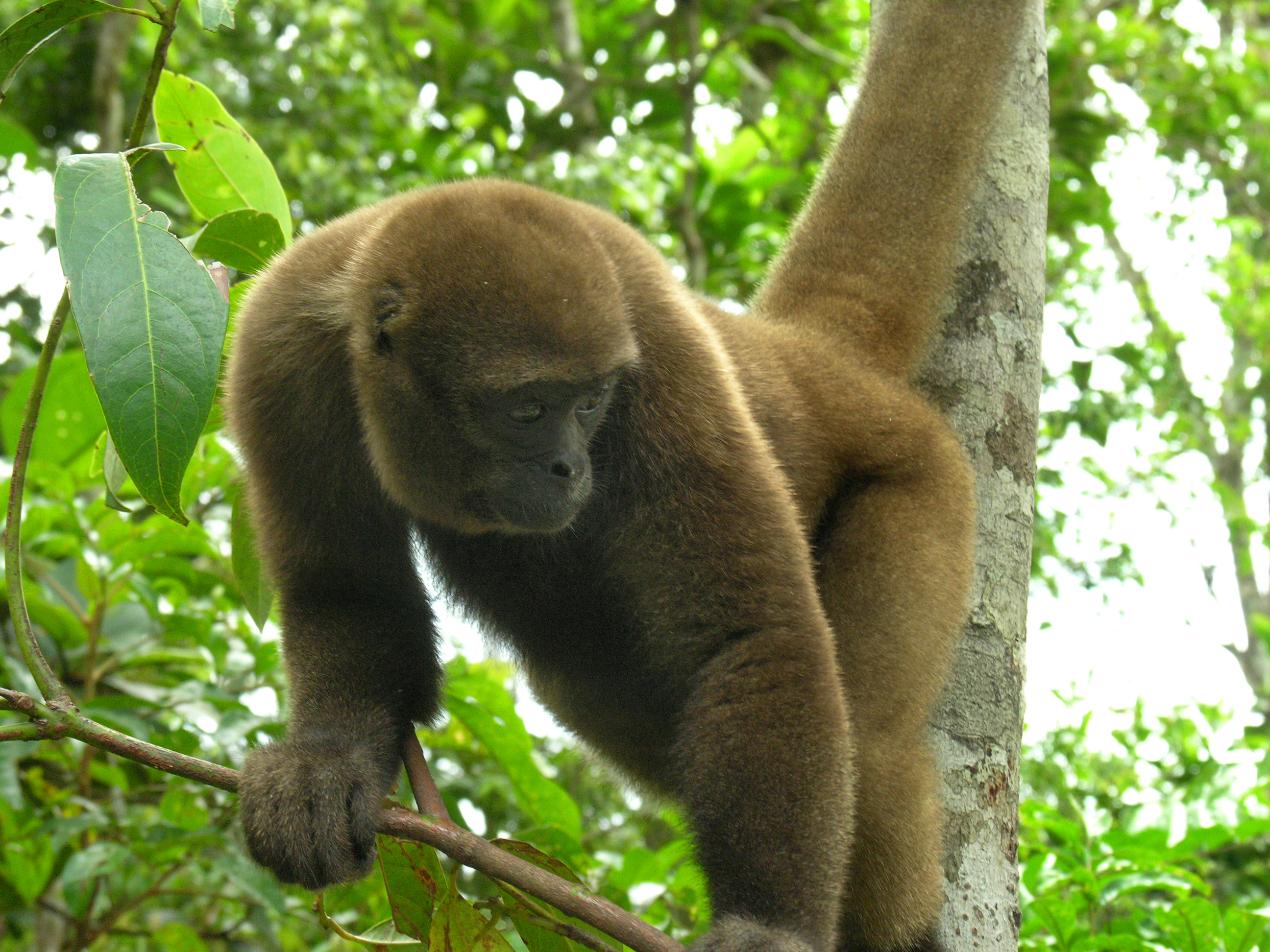
Venezuela's
Guayana is one of the most gorgeous regions I had ever seen on Earth. It has an extraordinary biodiversity, breathtaking landscapes and is home to several of Venezuela's last First Nations. Those First Nations have several languages, from
Pemon and Yekwana to
Yanomamö. Yek'wana and Pemon are probably as close to each other as Spanish is to French, whereas Pemon is as close to Yanomamö as English is to Hebrew or Arabic. We are talking about very unique cultures, unique and under threat.
Several important rivers have their origin there. Most of Venezuela's electrical power comes from the dams built in them. The region is rich in gold as well.
Southern Guayana has had a problem with illegal mining for many years. When I first was there, in 1990, there were very few outsiders in the region. In 1997, Santa
Elena de Guairén, the main city in Southern Bolívar, had already grown and there was a good road towards Brazilian
Boa Vista. Still, changes would come later on.
Back in 1997 I talked to several illegal miners who were taking the same route through the jungle, towards
Icabarú. There were a couple of military posts on the road and nothing more but jungle. The military, who were supposed to do something about illegal mining, would just greet them by name and let them pass. Very few tourists passed through that road, so the soldiers knew who was who. I remember how I asked the miners about the mercury. "Don't you think that is bad for the rivers, for the animals?" "Nay, nothing happens. Mercury is only bad for us, the miners".
The situation has dramatically worsened since then. From 2006 onwards it has become absolutely critical. I have written several times about it (for instance,
here and
here). El Universal published
an interesting article about the problem a couple of days ago. I was actually writing this post when the vicepresident finally spoke.
The only people who can be found in those areas are native Americans, military posts and illegal miners. There are very few tourists. There is no way mining machinery can get to the illegal mines unless they pass in front of the military posts. And that is what is happening day in and day out.
 Caura Region
Caura RegionThe
Caura has its origin in Southwestern Bolívar and flows northwards into the Orinoco.
El Universal article quotes José Royo, from the Indigenous Parliament, who says that before 2006 there were some 600 illegal miners in the Caura region and now there are more than 3000 miners from Brazil, Colombia and Guyana. Other sources talk about more than 4000. Mind: that number refers to the Caura region only.
The region around
Jaua Sarisariñam, one of the most impressive
tepuyes, is supposed to be a restricted area for anyone but native Americans and scientists. In reality it is one of the most affected.

Sarisariñama with its huge caves containing unique flora and fauna is one of the worst hit by miners just in the Caura region
The massive erosion has lead to an increase in the cases of malaria among the
Yekuana and
Sanemas. The Indians also suffer heavily from
mercury pollution. Dissident deputy
Pastora Medina says mercury has led to a dramatic increase in the cases of cleft lips and other deformities among Indian children. The fish in the rivers are full of mercury and the waters go all the way to the Orinoco and affect thus many more people.
The native American association Kuyujani went to the National Assembly to talk about this.
NGO Provea has also protested in front of the Ministry of Environment on several occassions. The Universidad Nacional Experimental of Guyana has organized a workshop to discuss the illegal mining in the Upper Caura.
Oswaldo Ponce, precandidate of the PUSV with native American background and even Vicente Rangel, a Chavista vicepresident -after so much talk from NGOs -, have finally taken over the topic.

White spots in some of the key areas of illegal mining
Gran Sabana The problems affect all the way from the Caura basin across the Caroní River eastwards up the the border with Guyana, in the Gran Sabana, on the Southeast of Bolívar state.
The
Caroni River has its origin in South-Southeast Bolívar State and it flows into the big
Guri dam and from there into the Orinoco. It is also heavily polluted now. Illegal miners get to Icabarú through the Santa Elena de Guairén route or with small airplanes.
The Pemón Indians, who inhabit that territory suffer from the same things as their cousins to the West: mercury poisoning, the destruction of their forests, the influx of illegal miners.
They are also increasingly under pressure from squatters and others from Santa Elena to the South and from the different mining spots on the West and North (
El Dorado).
The whole problem with illegal mining is not only present in Bolívar State, but in the other state Venezuela has south of the Orinoco: the Amazonas state. That region is as big as North Dakota and larger than Greece but fewer than 200000 people live there. Many are still native Americans (Yekuanas, but also Yanomamö, Piaroas, Banivas, Piapocos and others with very distinct languages). In a previous post I wrote how the government expelled hundreds of illegal Colombian miners who were in the Western part of the Amazonas state only when Chávez became angry with Colombian president Uribe. Until that moment they had been tolerated and they had been destroying the environment. I wonder what has happened with Venezuelan and Brazilian illegal miners in that area.
Why is all of this happening?Countries such as Brazil and Colombia have traditionally been very lenient towards environmental crimes in spite of their strict legislation. But they started to do real efforts to improve things and enforce the law. The Venezuelan government, on the other hand, has been mainly busy with pretending to have a revolution. Illegal miners have opted to cross the border on a massive scale for many years now, joining the groups of Venezuelan illegal miners. Many poor Venezuelans in the South have opted to get into mining because there are very few other options.
Gold is gold and votes are (still) votes
The military are said to receive a meaningful part of the gold as payment for allowing the ore extraction, for allowing the transportation and smuggling of food and much more. Many Indian villages have become now deposits of food, machinery, weapons and sex for miners. The town of El Dorado, just to the North of the Indian areas proper, is completely based on the mining industry.
The government does not want to lose votes. You can understand the situation when you read some of the things those minsers say in a video called
El Dorado. Please, take your time and watch it yourself. Things go like this:
"I have been working here for 30 years...and you know, after you are forty years old there is no other job in the state" (miner)
"fortunately, this government has allowed us to work".
If you watch the whole video, you will notice most of those miners haven't got the slightest clue about what damage they are bringing to the environment. They say they don't harm the forest because they don't cut many trees and then they "replant". They have no idea about the whole problems with mercury pollution and they are often not aware of how much vegetation they are destroying or what impact they are having to the local communities. Any state will have to do some serious work on education among these people.
The government has known very well about the problems in Guayana, but then: there are more miners and relatives of miners and newcomers who work providing food, machinery, dwelling and prostitutes to those miners than native Americans in the broad South Guyana region by now.
What to do?I hope with all my heart the government will finally do something about this. I doubt it but I can only hope it does. The pace of destruction is very fast now. I hope they don't just close a couple of mines for some time and forget about it all. I actually demand from the government to bring about sustainable improvements for the whole region of Southern Venezuela.
Among other things, the government must
- stop all illegal mining
- stop the use of mercury and other poisonous materials for mining
- create a reliable, independently-managed mechanism to guarantee that the military men (or better still, an educated police force) enforce the law and comply with it themselves
- stop further squatters from getting into national parks or areas destined to the First Nations
- fulfill the promise to give ancestral lands back to all native American communities while providing a mechanism for preventing that external groups profit from them
- improve health services to the First Nations
- guarantee good primary and secondary education for all native Americans and support the publication of text books and other material in all the native American languages with at least 1000 speakers
- support transparent programs to create sustainable jobs for the First Nation communities
- support transparent programs to generate job opportunities for all those Venezuelan miners outside protected regions
- provide good basic and secondary education including state books to all children in the Guyana region (for all Venezuelan children, for that matter, it costs less than what we are spending in weapons)
- prevent external groups or individuals who think "they are one with the environment" or "they do know how to live in communion with it" from living in those national parks
- introduce educational programmes in the whole Guayana area to educate people about pollution problems
When Chávez was a candidate back in 1998, he promised he would not let the huge electric line be built across the gorgeous
Gran Sabana. One of the first things he did was to build that electric line. Two Pemon indians were killed by the military while opposing the action.
After more than 500 years we finally need to understand we do not need El Dorado. We need sustainable development at a social, economic and environmental level.
Interesting post in Spanish about the Caura case
here








































